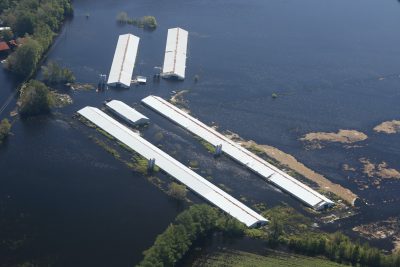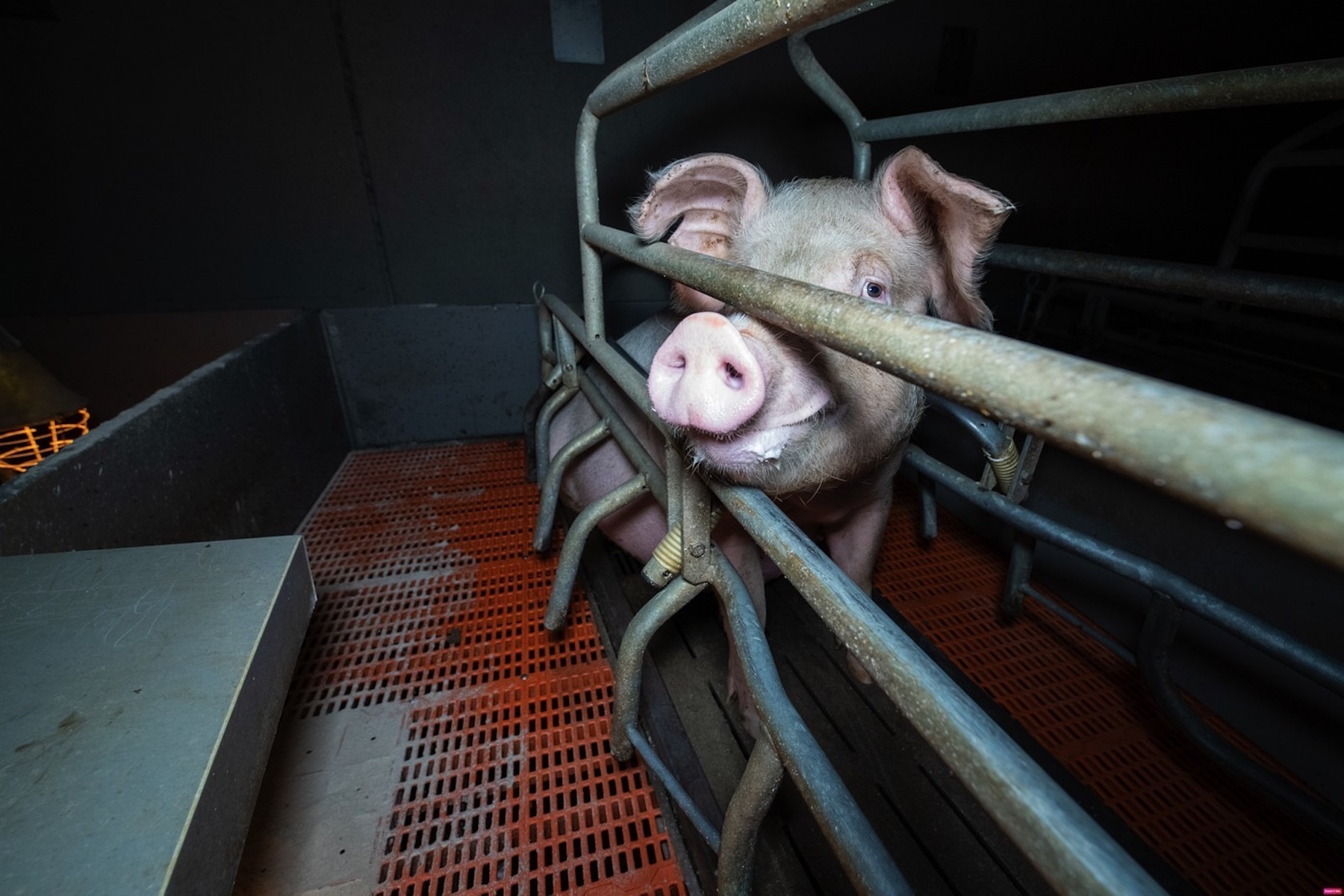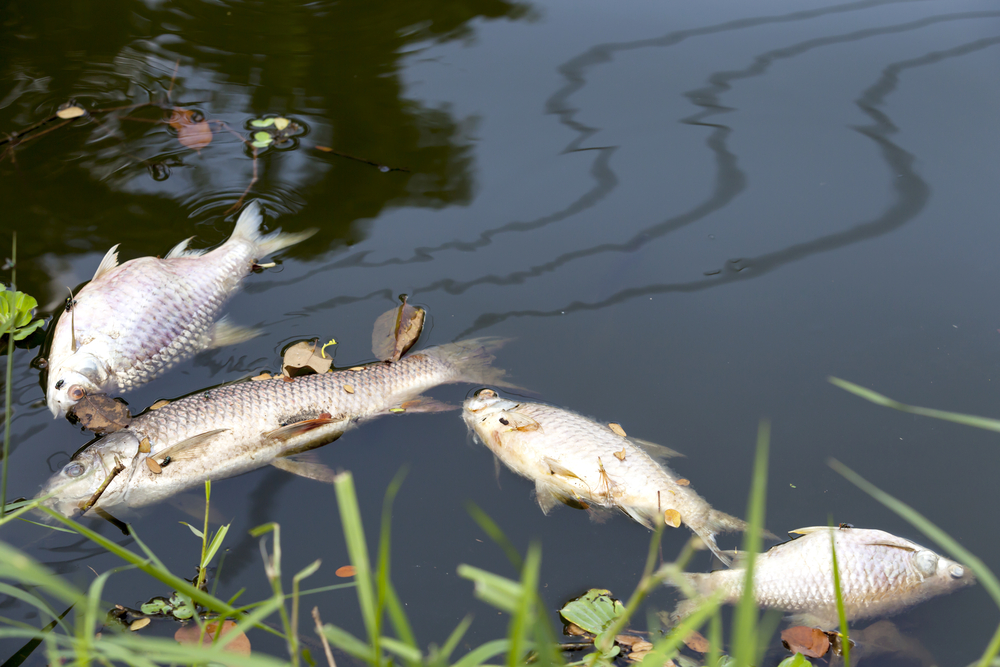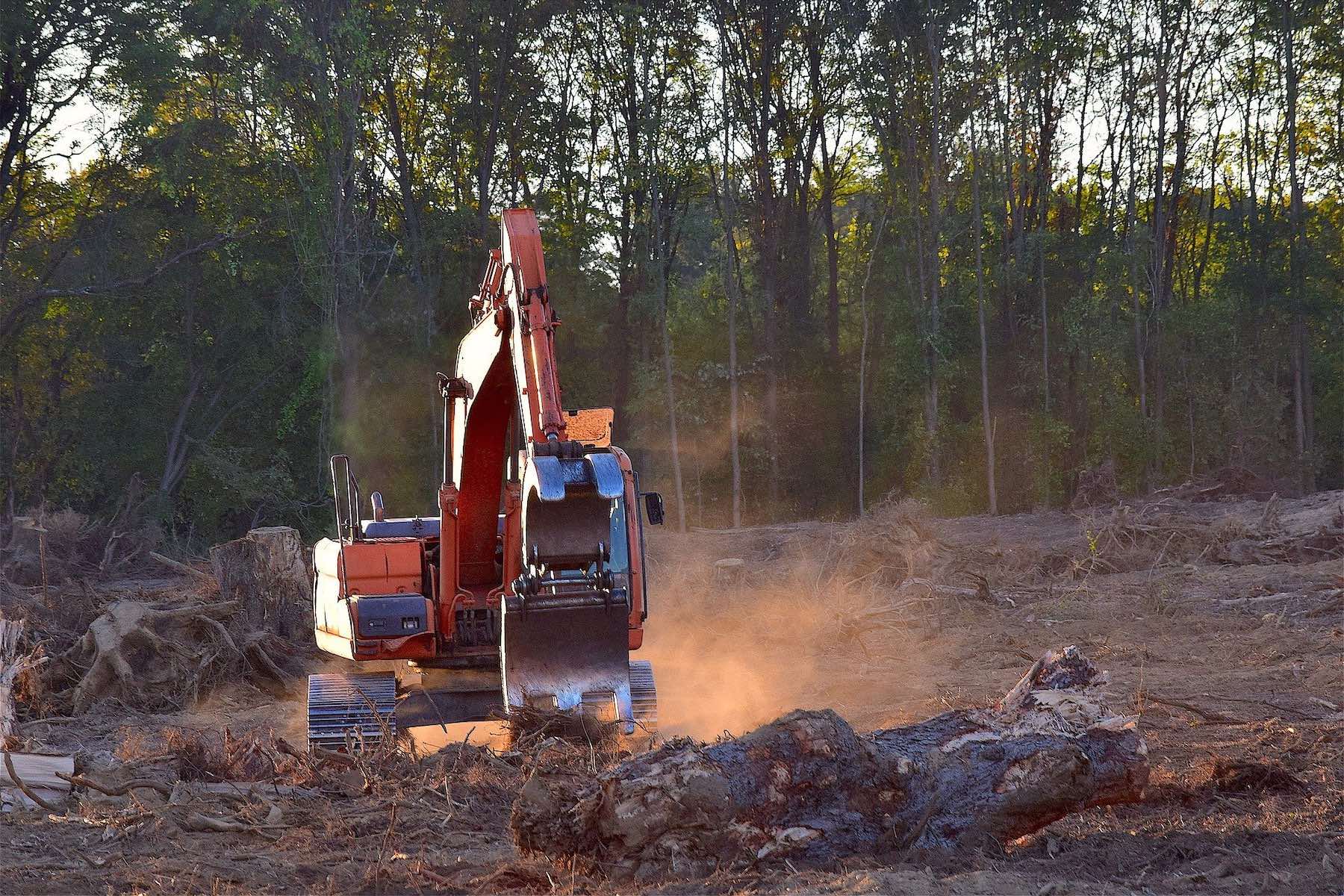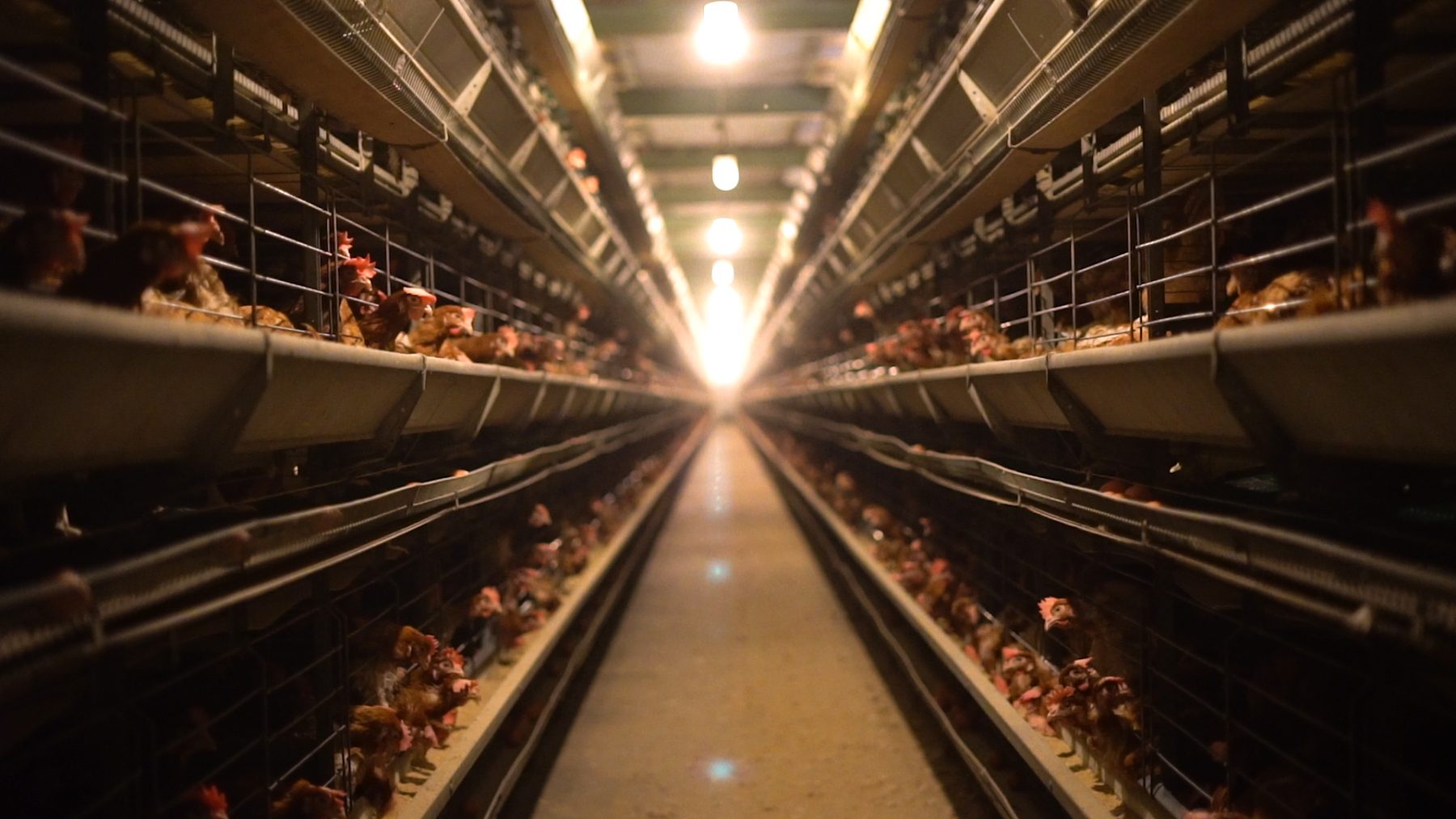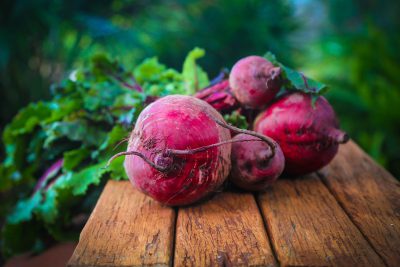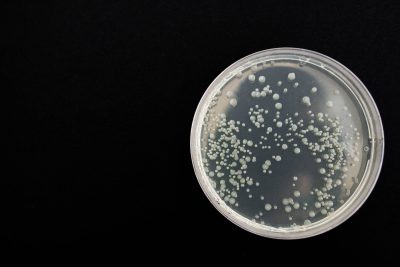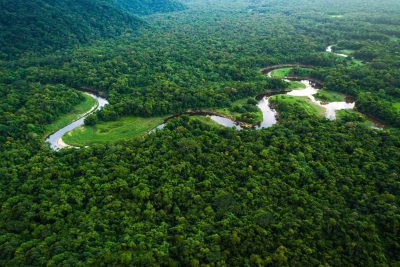A vast body of research shows just how bad the production of meat, milk and eggs is for the planet. The damage caused is both severe and widespread, and affects air, soil, rivers, oceans, forests and other habitats, insects and pollinators, wild animals and the climate. With just one planet that we all rely on for our existence, eating animals is increasingly being seen as an act of reckless self-harm.
What Are Factory Farms?
Factory farms are intensive industrial facilities where animals are confined in large numbers. There, they are either impregnated and bred from, and their offspring fattened for slaughter, or they are kept and exploited for their milk- or egg-producing capabilities.
Factory farms are characterised by confinement, deprivation and suffering. Cows suffer infected teats; hens are deliberately starved to ensure they lay bigger eggs; pregnant pigs are kept in cages so small they cannot even turn around; chickens stand all day on broken legs.
How Is Factory Farming Bad For The Environment?
It’s obvious that factory farming is bad for animals but it also has many diverse and serious impacts on our planet. Having examined the evidence, Oxford University researchers concluded that becoming vegan was the single biggest thing we as individuals can do to help the planet.
Air Pollution
According to the National Resources Defense Council, manure from America’s factory farms contains more than 150 pathogens, including ammonia, hydrogen sulfide, methane and particulate matter. Not only does this mean unpleasant smells for local residents but these pollutants can have serious health consequences, too. Ammonia can cause lung disease and respiratory problems, while exposure to particulate matter over a longer period is associated with heart attacks. Studies show that asthma rates are higher in children who live near a factory farm.
Water Pollution
Today, there are more farmed animals on the planet than people, and the vast amount of manure they excrete has to go somewhere. Far too much is disposed of on the land, and it leaches into the water table and runs into rivers, lakes and oceans. There, it feeds algal blooms which are devastating to aquatic life. Rivers die, while ocean dead zones are increasing in both size and number.
Greenhouse Gas Emissions
Manure also contains nitrous oxide and methane, which get into the atmosphere, driving climate breakdown. Nitrous oxide is a molecule with a global warming potential 265 times higher than carbon dioxide, while methane’s effect on global warming is 28 times higher.
Resource Waste
The creation of animal products is incredibly wasteful of the Earth’s resources, demanding far more water, energy and land than plant foods. This is because we have to feed animals a lot more food than we get from them in meat, milk and eggs. This wasteful exercise explains why animal agriculture uses 83 percent of all farmland but gives us just 18 percent of our calories.
Deforestation
Because so much land is needed to graze animals and to grow the vast amounts of crops they eat, more and more land is needed to meet the increasing demand for meat. We can’t just magic land out of nowhere, and so it is taken from nature. Ancient forests and other irreplaceable habitats are destroyed for grazing and to grow animal feed. Animal farming is responsible for 91 percent of the Amazon’s destruction.
Climate Change
Because of the greenhouse gas emissions given off by ruminants and in their manure, the large amounts of energy needed to produce animal products, and the destruction of forests and other wild places, animal agriculture is a leading contributor to climate change. In fact, it is responsible for 14.5 percent of all human-generated greenhouse gas emissions – that’s more than the fuel from every car, plane, bus, ship and train on the planet.
Oxford University researchers found that animal products emit far more greenhouse gases than plant products, and that even the least sustainable plant milk is still better for the planet than the most sustainable cows’ milk.
And for those who think eating locally sourced meat, milk and eggs is better for the planet than eating imported vegan foods, think again. Transportation is actually responsible for only a small proportion of greenhouse gas emissions from food, and the huge emissions throughout the animal farming process far outweigh the cost of transporting fruits and vegetables. Researchers found that for the average American household, ‘buying local’ could achieve, at best, a 4−5 percent reduction in emissions but eating plant-based just one day a week will have the same impact. Eat plant-based every day, and you multiply your positive effect seven-fold.
Monocultures
To produce the vast amounts of feed needed for all those hungry farmed animals’ mouths, we need to grow many times more crops than we would need if we ate the crops directly. This means the creation of intensive arable farms, which – in the production of one single crop – are little better than deserts. Huge amounts of chemicals are sprayed onto them to keep production as high as possible, but one man’s ‘pest’ is another bird’s lunch, and in killing bugs we destroy the food that wild animals need to survive. Whatever the crop, monoculture is the exact opposite of a diverse, thriving, healthy ecosystem.
Species Loss
With immense tracts of monoculture and the liberal use of chemicals to maintain it, and with forests cleared and habitats destroyed for meat production, animal agriculture is rapidly decimating wildlife. Research shows that humanity has wiped out 60 percent of wild animal populations just since 1970. Today, of all the mammals on Earth, 96 percent are livestock and humans, and just 4 percent are wild mammals. Something has gone very wrong.
Why Is Factory Farming Not Sustainable?
Factory farming is not sustainable because it uses far too much land, water and energy. To keep producing it we need ever more. Cutting down forests and other habitats not only releases CO2 into the atmosphere, but it prevents those felled trees from absorbing more.
Factory farming is not sustainable because 690 million people went hungry last year, and yet we waste edible crops by feeding them to livestock, and get far fewer calories back as a result. If all the grain currently fed to farmed animals in the United States were consumed directly by people, we could feed 800 million people. We could end world hunger.
Factory farming is not sustainable because keeping stressed animals in filthy, overcrowded conditions creates disease factories. Three quarters of emerging infectious diseases come from animals and pandemic experts warn that poultry farms in particular are ticking time bombs. It is estimated that three quarters of all antibiotics used globally are administered to farmed animals to try to keep them alive, but also to make them grow faster. As a result, pathogens are starting to mutate. If a zoonotic pandemic does not wipe us out, antibiotic-resistant superbugs might.
Factory farming is not sustainable because it damages our health. By producing so much so cheaply, people are encouraged to eat meat, cheese, eggs and other animal products. These raise the risk of suffering hypertension, heart disease, type 2 diabetes, Alzheimer’s disease and some kinds of cancer. Our health systems are groaning under the weight of illness caused by the consumption of large amounts of cheap animal products. None of this is sustainable.
How Can We Stop Factory Farming?
Factory farming is not an inevitability. It exists only because people buy animal products. And all it takes to end it is for people to stop funding it. Since almost every farmed animal in the United States and Europe is reared intensively, we cannot avoid factory farming if we continue to consume animal products.
And so the answer is simple: we must choose a plant-based diet. This can benefit our own health and that of our family, community and indeed the wider world. And it will also benefit the planet in so many ways – improving air, land and water quality, slowing down climate change, and preserving wild habitats and the species that live within them. It will also free up resources to allow us to feed every person on the planet. How’s that for an incentive?
Conclusion
There is overwhelming evidence from the world’s most highly respected institutions about the impact of diet on our planet, and their conclusion could not be clearer.
Already, we are seeing the impacts of climate change – forest fires, droughts, floods, storms and heatwaves – and these will only worsen in severity and regularity over the coming years. Right now, the effects are localised but it won’t be long before climate breakdown wipes out whole communities, displaces entire populations and creates thousands, perhaps millions, of refugees.
We cannot wait for governments to act and nor is it right to point fingers at others and say ‘they should act, not me’. This planet – our home – needs us all.
There is no time to lose. For the sake of our planet – and our own future – we have to stop eating animals.
Feeling inspired to try vegan for the planet? Find out more with our free Vegan Starter Kit, Health & Nutrition Guide and our favourite recipes.
